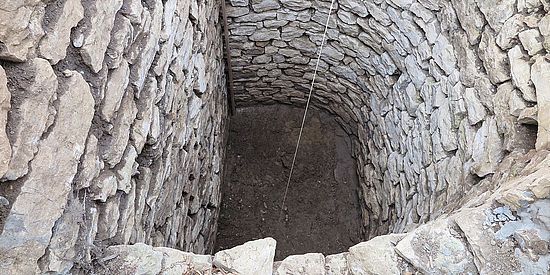
Research Focus
In archae(bio)logical research, the Vindonissa professorship concentrates mainly, but by no means exclusively, on the Roman sites in the canton of Aargau.
At Vindonissa, the focus of interest is on the living and housing space of the population living directly at the legionary camp. Among other things, the question arises whether the differences between the "civilian settlement east" and the "civilian settlement west" in terms of architecture and construction reflect a different legal status (canabae or vicus).
Further fields of research include the necropolises as well as the manor houses and civilian settlements in the surrounding area of Vindonissa or the cultural and economic interactions between the legionary camp and its surrounding area. We are interested, for example, in the influence of the use of natural resources - e.g. in the procurement of firewood and timber - on the natural environment or in the effects of the abandonment of the legionary camp in AD 101 on the civilian settlements in the surrounding area - and how these are manifested in the archaeological evidence and in the archaeo(bio)logical find material.
On the individual research fields and projects in and around Vindonissa
In Augusta Raurica, besides the structural development of the residential and commercial quarters in the lower town of Augusta Raurica (Kaiseraugst) during the imperial period, the processes of transformation in the course of the 3rd century AD ("transformation en bidonville", "squatter occupation", phenomenon of the so-called burials "extra sepulcretum") are of particular interest. In the case of the Castrum Rauracense and its suburbium, we are interested, among other things, in its (changing?) role in the period between the 4th and the 6th century AD.
Further fields of research include the evaluation of the necropolises of Augusta Raurica from the Imperial and Late Antique periods, from which we hope to obtain important information - among other things, on the origin, composition and living conditions of the population living here - as well as the Roman settlement in the Fricktal. We are interested, for example, in whether the cultural and economic interactions during the Roman period manifested themselves in the same way in the Fricktal as in the rest of the surrounding area of the caput coloniae, or whether these changes occurred uniformly and simultaneously during the Roman period.
To the individual research fields and single projects in and around Augusta Raurica
Further research projects of the Vindonissa Professorship:
- Archaeological and numismatic investigations of the mint at Haldenstein Castle GR (dissertation Rahel C. Ackermann).
- The Roman vicus ofTasgetium (Eschenz) - The wooden building finds (completed dissertation Melanie-Giger, published in the series "Archäologie im Kanton Thurgau".
Quick Links
